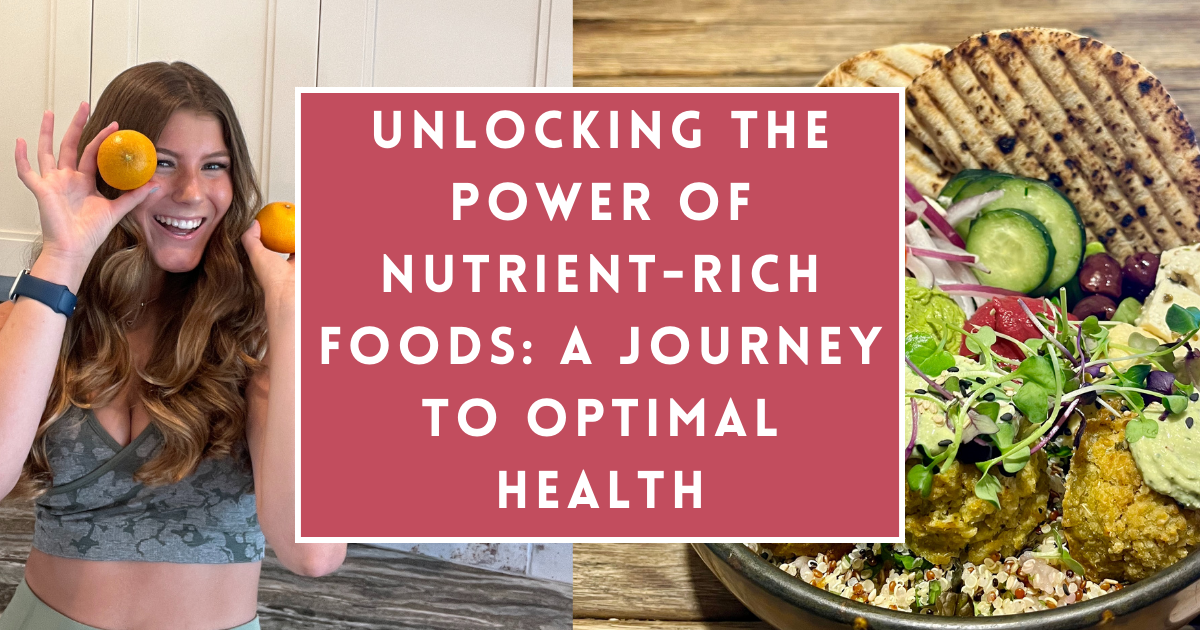
In a world inundated with fad diets and conflicting nutritional advice, it’s easy to get lost in the vast sea of information. However, when it comes to nutrition, one principle remains unwavering: the profound impact of nutrient-rich foods on our overall health and well-being. In this 1000-word blog post, we will embark on a journey through the fascinating world of nutrition, exploring the importance of nutrient-dense foods and their role in promoting a vibrant, healthy life.
Understanding Nutrient Density
Nutrient density is a term that encapsulates the concept of obtaining the most essential nutrients for the least amount of calories. In other words, it’s about getting the most nutritional bang for your caloric buck. Nutrient-dense foods are packed with vitamins, minerals, fiber, and other vital nutrients, making them an excellent choice for maintaining health and preventing disease.
Examples of nutrient-dense foods include leafy greens, colorful vegetables, lean proteins, whole grains, and certain fruits. By focusing on these foods, you can improve your nutritional intake and reduce the risk of deficiencies.
The Magic of Micronutrients
Micronutrients, such as vitamins and minerals, are essential for various bodily functions, from metabolism to immune system support. Let’s delve into some of these vital micronutrients and explore where to find them in your diet:
Vitamin C: This immune-boosting vitamin is abundant in citrus fruits, strawberries, kiwi, and bell peppers.
Calcium: Dairy products, fortified plant-based milks, and leafy greens like kale are excellent sources of calcium, crucial for strong bones and teeth.
Iron: Iron is essential for transporting oxygen in the blood. You can find it in lean meats, beans, spinach, and fortified cereals.
Vitamin D: Often referred to as the “sunshine vitamin,” vitamin D can be synthesized by the body when exposed to sunlight. It’s also found in fatty fish, egg yolks, and fortified foods.
Potassium: This mineral is vital for heart health and can be obtained from bananas, sweet potatoes, and beans.
Folate: Essential for pregnant women and cell growth, folate is present in leafy greens, beans, and fortified grains.
Magnesium: Almonds, spinach, and whole grains are rich sources of magnesium, which supports muscle and nerve function.
Balancing Macronutrients
While micronutrients are essential, macronutrients, including carbohydrates, proteins, and fats, play a significant role in maintaining energy levels and overall health.
Carbohydrates: They are the body’s primary source of energy. Opt for complex carbohydrates such as whole grains, legumes, and vegetables for sustained energy.
Proteins: Proteins are the building blocks of our body and play a crucial role in muscle growth and repair. Incorporate lean protein sources like chicken, fish, tofu, and legumes into your diet.
Fats: Healthy fats, such as those found in avocados, nuts, and olive oil, are essential for brain health, hormone production, and the absorption of fat-soluble vitamins.
The Role of Fiber
Dietary fiber is another often-overlooked component of a healthy diet. It aids digestion, helps maintain a healthy weight, and may reduce the risk of chronic diseases. There are two types of dietary fiber: soluble and insoluble.
Soluble fiber, found in oats, beans, and fruits, can help lower cholesterol and stabilize blood sugar levels. Insoluble fiber, prevalent in whole grains, vegetables, and nuts, promotes regular bowel movements and a healthy gut.
The Colorful Plate: Phytonutrients
Phytonutrients are compounds found in plants that provide various health benefits. These natural compounds give fruits and vegetables their vibrant colors and are associated with disease prevention. For example, lycopene in tomatoes, anthocyanins in blueberries, and beta-carotene in carrots all possess powerful antioxidant properties that protect our cells from damage.
Eating a rainbow of fruits and vegetables can help ensure you get a broad spectrum of these beneficial phytonutrients in your diet.
Mindful Eating
In our fast-paced world, it’s easy to consume food mindlessly, leading to overeating and poor food choices. Mindful eating involves paying attention to your body’s hunger and fullness cues, savoring the flavors and textures of your food, and being present during meals.
By practicing mindful eating, you can develop a healthier relationship with food, make more informed dietary choices, and enjoy your meals more fully.
Nutrition is the cornerstone of a healthy and vibrant life. By focusing on nutrient-dense foods, incorporating a variety of essential vitamins and minerals, and embracing a balanced diet, you can empower yourself to live your best life. Remember, it’s not about deprivation or following restrictive diets; it’s about nourishing your body with the goodness it craves and deserves. So, embark on this journey to optimal health through the power of nutrient-rich foods, and savor every delicious bite along the way.

